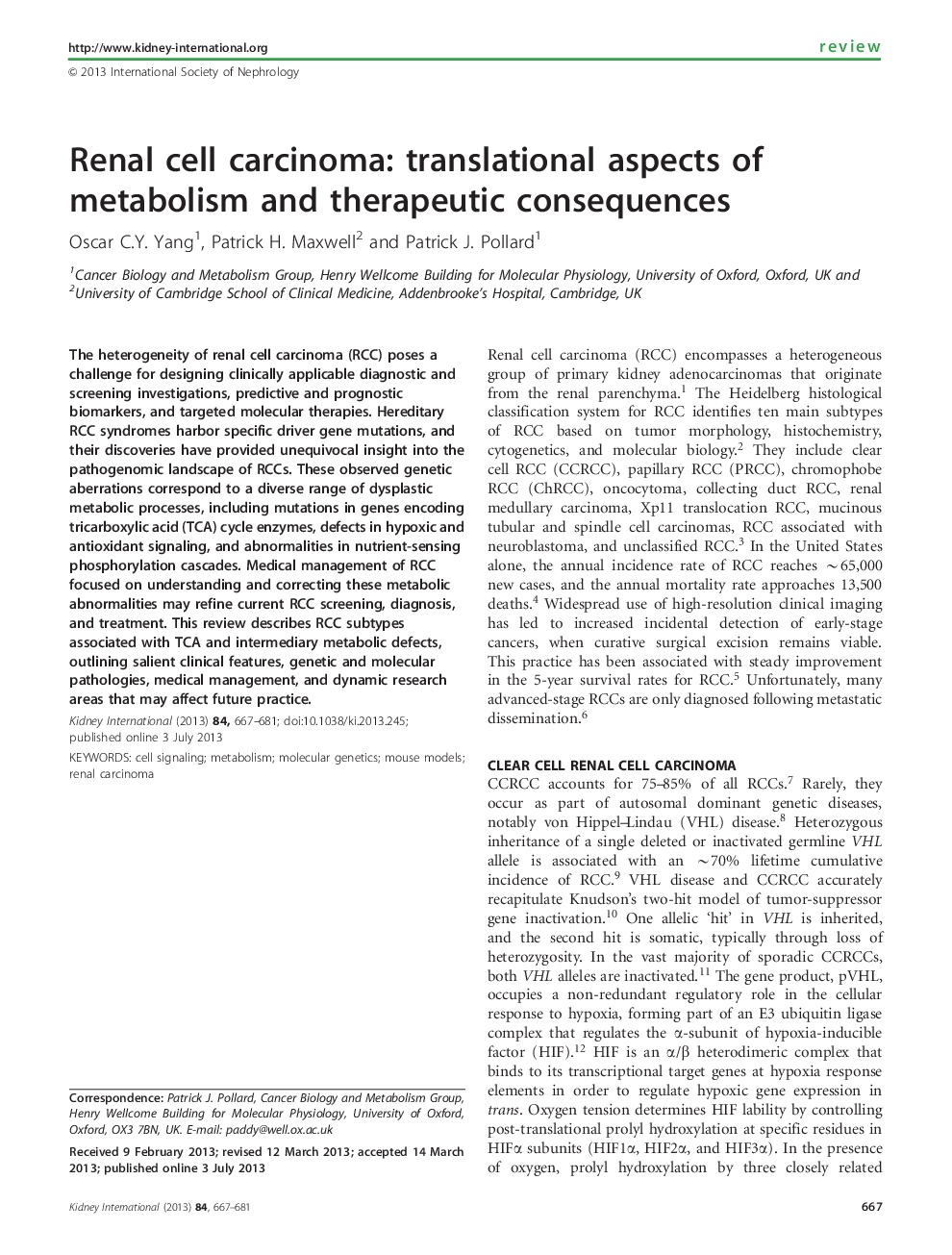| Article ID | Journal | Published Year | Pages | File Type |
|---|---|---|---|---|
| 3882937 | Kidney International | 2013 | 15 Pages |
The heterogeneity of renal cell carcinoma (RCC) poses a challenge for designing clinically applicable diagnostic and screening investigations, predictive and prognostic biomarkers, and targeted molecular therapies. Hereditary RCC syndromes harbor specific driver gene mutations, and their discoveries have provided unequivocal insight into the pathogenomic landscape of RCCs. These observed genetic aberrations correspond to a diverse range of dysplastic metabolic processes, including mutations in genes encoding tricarboxylic acid (TCA) cycle enzymes, defects in hypoxic and antioxidant signaling, and abnormalities in nutrient-sensing phosphorylation cascades. Medical management of RCC focused on understanding and correcting these metabolic abnormalities may refine current RCC screening, diagnosis, and treatment. This review describes RCC subtypes associated with TCA and intermediary metabolic defects, outlining salient clinical features, genetic and molecular pathologies, medical management, and dynamic research areas that may affect future practice.
